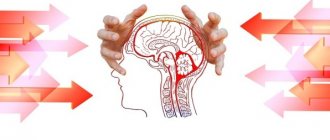What does it mean
These are diseases provoked by our thoughts, state of mind, psychological mood. One should not make a hasty conclusion that such pathologies are simply a product of fantasy - a fiction. Health problems arise just real. They appear not only under the influence of harmful viruses, microbes or due to metabolic disorders. The reasons may well be non-physical sources.
Thoughts are material. This truth has long been confirmed even among the most zealous skeptics. The human body is dependent on mood. In reality, the body is controlled not by the musculoskeletal system, but by emotions. With prolonged stress, systematic nervous tension or anxiety, a person begins to experience real physical pain. I think I managed to explain what psychosomatics in psychology is in simple language.
How to reset dangerous emotions and get rid of resentment
Pavel Valerievich Evdokimenko, a practicing rheumatologist, neurologist, academician of the Russian Academy of Medical and Technical Sciences, will tell you how to get rid of nervous tension.
Psychosomatics - 2. Stress: how to relieve dangerous emotions and get rid of resentment.
(The video does not work on turbo pages; to view it, go to the main version of the site. Link at the end of the article.)
Do not forget about such a mechanism as sublimation. It helps relieve internal tension by redirecting unspent energy into a socially acceptable direction. Read about what sublimation is and how it manifests itself in a separate article.
The process of emergence and development of psychosomatic disorders
Stress is the starting point. It entails the inevitable appearance of an action hormone. Its amount is individual, but even a minimal concentration is guaranteed to cause tension in muscle tissue, to which the body responds with movement. This is an instinctive reaction. Imagine a wild animal in the forest. At the slightest hint of danger, he prepares for an attack or tries to escape. There is no third. You need to act without delay, otherwise you will die.
People often lack such unconscious impetuous impulses. It would never occur to anyone to run away from an angry boss or, conversely, to attack him with fists. As a result, tension does not go away; it remains, transforming into muscle pinching.
Regular worry and worry exhaust the personality; its internal psychological basis becomes tired of constant discomfort. As a result, if you ignore it for a long time and try to get along with it, it turns into a pain syndrome and develops into a disease.
Causes of psychosomatic diseases
It is important to understand that illness cannot appear on the basis of one minor emotion. Most often, the body gets sick when the psyche cannot cope with the scale of the experience.
Constant stress
All people living in the modern world are subject to stress. Living in big cities and the fast pace of life have an adverse effect on the psyche. Stress itself is a normal reaction of the psyche, a kind of turbo mode when the body is in an active position to protect itself from external factors.
The stress response can be compared to ancient times, when people had to get their own food and protect themselves from predatory animals. The man either fought with the wild animal or ran away from it. Then the “hit-and-run” mechanism was triggered as a reaction to danger. This mechanism underlies the physiological basis of stress.
This activity of the body is useful situationally, but not constantly. If you are stressed all the time, you can get sick.
Daily problems at work, quarrels with loved ones, financial problems, information overload, lack of time - all negative emotions from everyday problems can lead to stress. In order to prevent the development of psychosomatic diseases against this background, you need to be able to relieve stress, experience negative emotions, and not accumulate them.
Long-term experience of negative emotions
Negative emotions include anger, resentment, envy, fear, disappointment, and anxiety. If you carry around negative feelings for a long time, they can transform into illness . For example, according to Louise Hay's table of psychosomatic diseases, frequent sore throat can be associated with constant suppression of anger, resentment and at the same time with a feeling of defenselessness and helplessness.
Allergies can be caused by violating boundaries or expressing disagreement. Migraines occur in people who are dissatisfied with themselves and constantly experience uncertainty and fear. Benign tumors can arise due to unlived old grievances and unwillingness to let them go. Malignant tumors appear due to total, destructive grief and resentment that a person has not let go of.
Chronic illnesses are associated with constant fear. Feelings do not disappear from the body. If they are not released for a long time, emotions can find a very destructive outlet in the body.
Unreacted emotions
Feelings that have not received a response are also . Living with negativity for a long time has a harmful effect on the body, but restraining and suppressing emotions is also very dangerous. Every feeling has energy. If a negative feeling is not given a way out, then it is directed inside the body and carries traumatic consequences.
Any negativity should be lived here and now, then there will be fewer health problems. For example, accumulated unexpressed anger and aggression can be transformed into auto-aggression, that is, aggression directed at oneself. This feeling can literally lead to “self-criticism” – ulcers or similar diseases.
Unfortunately, not all people are able to distinguish between their own experiences and adequately express them. The worse a person understands himself, the higher the risk of developing psychosomatic diseases.
Benefit from illness
Sometimes diseases appear on an unconscious level due to some unmet psychological needs. For example, a frequently ill child lacks the attention of his parents. When he is sick, all his relatives around him pay a lot of attention to him.
Read the article about how to make your child happy.
In adults, illness can serve as an excuse for laziness and inaction. And also this may be the only way to rest the body and attract your own attention to yourself. Conditional benefits from illness can be used to treat old psychological traumas and needs at an unconscious level.
These are all unconscious processes that are extremely difficult to track on your own. But if you understand the mechanism and causes of the disease, you can solve the problem much faster. It’s worth asking yourself questions: “What does illness give me? What is it for?
Causes of psychosomatics
Without taking into account physiology and genetics, researchers have identified the main reasons for the occurrence of diseases.
- Persistent stress and emotional tension. It is stress that plays a decisive role. People of different age categories are susceptible to it: troubles at work, problems at school, family quarrels, feuds with neighbors.
- Prolonged experience of negative emotions. They are capable of destroying even the most resilient from within. Resentment, disappointment, anxiety and fear - they all tend to destroy rather than create.
- Unexpressed feelings. When the soul cries and a person smiles, the internal organs have to cry instead. An emotion that we have not expressed, felt or responded to turns into a deadly weapon aimed at ourselves. The psychosomatic relationship is too serious to be neglected or underestimated.
- Motivation or conditionally determined benefit. Sometimes, looking at a friend or colleague, we can catch ourselves suspecting that he is deliberately hiding behind an illness in order to avoid psychological difficulties. But the most interesting thing is that a person is not just hiding behind a fictitious story of an illness, he is really sick.
Does psychosomatics work?
Many scientists are skeptical about the claim that our illnesses often occur due to psychological trauma. However, multiple studies have shown that chronic stress has a serious impact on human health and leads to disease. Stress weakens our immunity , reducing the body's resistance to various diseases.
Why then cannot our thoughts and feelings affect our health and well-being? Psychologists and psychoanalysts agree that the body reflects our emotional state and thoughts. And since we rarely monitor what we feel and what we think, it is the body that signals a person that there is dissonance somewhere. In this case, pain and illness occur only when the process is very advanced.
For example, a person does not know how to openly express his thoughts and feelings and restrains himself. This goes on for many years, and for some reason this person very often gets a sore throat. Perhaps the root cause of the disease is one’s own prohibition on expressing feelings? If traditional medicine does not cope with the disease, it makes sense to allow yourself to talk honestly and openly about your feelings.
You can turn to different sources to identify the causes of emerging diseases. For example, the American Louise Hay compiled a table of diseases with the reasons that could lead to their development and affirmations that help get rid of diseases. Louise is the author of over 30 books related to healing the body.
She cured cancer by developing a special program for herself and getting rid of the grievances that she had accumulated within herself for many years. In the book “Love Your Illness,” Russian psychotherapist Valery Sinelnikov also talks about how to regain health with the help of simple practices.
Psychosomatics of diseases: the most dangerous emotions.
(The video does not work on turbo pages; to view it, go to the main version of the site. Link at the end of the article.)
Manifestations of psychosomatics
Let's study the relationship between the body and the psyche using a specific disease - asthma. When it worsens (due to an allergic reaction), an attack begins. It is impossible to breathe normally; exhalation causes particular difficulties. The patient refuses to live a full life, does not try or does not know how to “breathe deeply.” Alternatively, he thinks that he is not worthy to inhale air without anyone’s help (inhaler). And, of course, he takes a lot for himself, but gives back much less (difficulty in exhaling).
Historical reference
The question of what psychosomatics is, how it manifests itself and how it is treated, has been asked for a long time. The relationship between the body and the psyche was confirmed by ancient Greek medicine. They wove together the human body and emotions.
Back in the 18th century, the British doctor T. Willis found that an increase in blood sugar levels occurs from prolonged sadness. It was he who told the world about diabetes and stimulated the development of science.
But Nietzsche is considered to be the founder of the psychosomatic approach to illness. He owns a large number of works on the topic of “intelligent body”, on which an entire direction in philosophy is based.
Psychosomatics according to Freud
This scientist is known for his significant contribution to the development of this science.
His famous expression: “When we send a problem out the door, it comes back through the window.” This refers to the psychological protective function - repression. People tend to drive away bad thoughts and sweep them aside. However, this will not make them disappear.
Psychologist Daria Milai
Make an appointment
It was he who declared at one time about the flexibility, but at the same time vulnerability of childhood. About what role the child’s first impressions play in the development of personality, forming the basis of the individual.
Groups of psychosomatic diseases
Understanding what psychosomatics means, it is easy to imagine how exactly the body and psyche intersect.
Causes of insomnia
A person susceptible to such a disorder, as a rule, does not part with his problems at work for a second. Endless bustle, everyday worries and numerous questions requiring answers do not allow him to relax.
Headache
The sources of pain, according to psychoanalysts, are low self-esteem, inexplicable fear, increased self-criticism, persistent dissatisfaction with oneself on behalf of the inner voice.
Migraine
People with such problems have the highest degree of self-criticism. They literally drive themselves into a corner with everyday pressure. Violation of harmony with the world should also be considered among the causes of migraines.
Hypertension
The root of troubles is excessive confidence, inflated self-esteem. Impatience and the habit of taking on too much are also possible. Increased pressure is the result of fruitless attempts to jump above your head.
Hair
Dull, brittle curls signal despair, the inability to stand up for oneself and constant nervous tension. If a person doesn’t like himself, you shouldn’t count on having a full head of hair.
Diabetes
The consequence of unjustified hopes. When we don't get what we want, we experience stress. There is no need to delve into the past, bringing to light a sea of negative memories. You need to think only in a positive way.
Arthritis
Feeling depressed and disappointed in oneself are the main causes of this illness. Endless condemnation of one's own actions and thoughts only makes the situation worse.
Neck pain
Very often, people experiencing internal discord are unable to turn their heads. Pain syndrome gives an alarm bell that the connection between feelings and consciousness has been lost. Particularly susceptible to problems with cervical vertebrae are those who worry about what is said behind their back and are afraid of being judged.
Eyes
The organs of vision are the perception of the surrounding world. Not only at the physiological level. Patients usually have a reluctance to live in the present. They frantically return to the past or imagine a non-existent future.
Teeth
What does a psychosomatic disease mean, expressed by the destruction of tooth enamel and even loss? The inability to realize responsibility to oneself, cannot make a decision at the right time. Fear of failure and self-doubt are his constant companions.
Oral cavity
Painful manifestations in the mouth, for example, stomatitis, indicate that a person is seriously offended. Pustules on the inside of the cheeks are a sign of talkativeness and a tendency to talk about nothing.
Face-to-face consultation
What are the features and advantages of face-to-face consultation?
Find out more
Skype consultation
What are the features and benefits of Skype consultations?
Find out more
Smell from the mouth
Bad thoughts or a thirst for revenge leave behind a disgusting breath.
Lips
Sensuality is directly reflected in their condition. Inconsistency leads to cracks. The habit of biting is an excessive demonstration of feelings.
Excess weight
Its excess indicates abnormal functioning of the spiritual content. In attempts to protect itself from the effects of external stimuli, the soul hides under a voluminous bodily shell.
Back pain
A consequence of the lack of psychological support from family and friends. Feeling of uselessness, unloving, desire to hide feelings.
Asthma
Those suffering from this disease are simply afraid to live, to move forward towards their goal. They constantly restrain themselves from expressing emotions and are able to nip even the strongest feelings in the bud. They are also distinguished by increased conscientiousness.
Cancers
The source of such dangerous diseases is considered to be long-standing grievances, hatred of someone from the past, or pangs of conscience. The worst thing that happened in life is kept by such patients as a great value.
Acne
They arise due to internal discord. Those with unclean skin tend to push others away from them (unconsciously), hide their good qualities and try not to contact the world as much as possible.
Well-known experts in the field of psychosomatics
The most famous experts in the field of psychosomatics put forward different theories of the occurrence of this or that illness caused by psychological factors. In books on psychosomatics you can find special tables that each of them developed. In tables, experts indicated diseases and possible causes of their occurrence. Let's take a closer look at their theories using examples of certain diseases.
Louise Hay
Louise Hay is a famous psychologist, writer, author of more than 3 dozen books of popular psychology, including the famous book “Heal Your Body with Love.” Louise Hay believed that psychosomatic illnesses were caused by unexperienced negative situations, destructive beliefs and hidden grievances.
She considered positive affirmations and visualizations to be the main methods of combating illnesses, which help to let go of grievances and survive negative life experiences. She proved through her own experience that any disease can be cured when she was diagnosed with cancer. The writer coped with the illness within six months.
Let's consider the probable causes of some psychosomatic diseases, based on the theory of Louise Hay.
· Throat diseases. As Louise believed, the throat is a creative channel. The causes of diseases of this organ can be: creative crisis, unspoken grievances, fear of change, inability to express oneself.
· Back diseases. The back and spine are a support, a support system for a person. Illnesses can appear due to lack of support: lack of money, positive emotions, moral support, communication with loved ones, a feeling of uselessness.
· Knees can hurt due to excessive stubbornness, pride, and inability to compromise.
Liz Burbo
Liz Burbo is a writer and educator on issues of psychosomatics and family psychology, who initially built a career in sales. Communicating with a large number of people every day, Liz came to the conclusion that most of them do not know themselves and what they live for. So Burbo became interested in issues of psychology.
The writer is sure that the body and mind are closely interconnected, and illness is a kind of signal that it’s time to listen to yourself. Liz Burbo considers self-knowledge to be the main method of healing.
Let's look at the causes of some diseases, based on the theory of Liz Burbo.
· Stomach diseases indicate internal disagreement to accept a certain life situation. A person does not hear his inner voice, drowns out his reluctance to put up with it, and accordingly, the body thus signals that you need to listen to yourself and change the situation or attitude towards it.
· Diseases of the teeth and gums signal the inability to “chew” some problem, the weakness of a person, the inability to stand up for oneself, to defend one’s opinion.
· Crohn's disease arises from the fear of being misunderstood, rejected by other people, and the fear of not meeting other people's expectations. The disease can also indicate an obsession with certain beliefs and a refusal to accept new things, excessive irritability.
Luule Viilma
Luule Viilma is a famous Estonian esotericist and doctor. After many years of traditional medical practice, she abandoned it in favor of studying psychosomatics.
The esotericist believed that the cause of all psychological illnesses is stress. When a person becomes unable to withstand the accumulated stress, his body begins to hurt. She believes that diseases caused by extreme stress can develop into malignant tumors.
To cure an illness, the patient needs to love himself, get rid of negative experiences, and engage in self-knowledge.
Below we will consider the causes of some diseases according to the doctor’s theory.
· Diseases of the legs and problems with the joints can manifest themselves due to feelings of guilt and anger experienced by a person, fear that no one needs him, or too strong a desire to become famous.
· Urolithiasis appears from a strong desire to surpass oneself, unhealthy egoism, and the desire for perfectionism.
· Pancreatic diseases arise from altruism, too much desire to please everyone, even to the detriment of oneself.
Valery Sinelnikov
Valery Sinelnikov is a practicing therapist, homeopath and psychotherapist. The doctor has published a number of books on medical psychology.
The theory of the emergence of psychosomatics according to Sinelnikov says that man and nature must exist as a single whole. Psychosomatic illnesses occur when a person lives in disharmony with the world around him, the Universe and himself. The universe and the human subconscious are indivisible. If there is a conflict between these two worlds, then illness comes.
Let's look at some examples of the occurrence of ailments according to the theory of Valery Sinelnikov.
· Kidney diseases. This organ symbolizes a person’s ability to free himself from unnecessary things and cleanse his body of negative emotions. Kidney disease occurs when there is too much anger, resentment, judgment and criticism in life, when a person considers himself a failure. He tries to suppress these negative emotions, which ultimately “precipitate” in the kidneys in the form of a disease.
· Liver diseases occur in vindictive people who provoke illness in themselves with their own angry thoughts.
Psychosomatics: the best selection of books.
Psychosomatics: table of diseases
This is a list of diseases classified as psychosomatic. The network space is filled with similar lists, but not all of them correspond to the real relationship between soul and body. Let's consider what the following ailments indicate.
Abscess
Constant thoughts about bad things, about hurt and pain caused. The desire for revenge.
Alzheimer's disease
Reluctance to live on earth, inability to perceive the real world, refusal to interact with others. Uncontrollable anger hiding helplessness.
Alcoholism
It is a consequence of overwhelming sadness and melancholy. The feeling of uselessness and failure to meet other people's expectations haunts alcoholics constantly.
Allergy
It can be caused by a feeling of humiliation and an attempt to hide something serious from loved ones. A wild mixture of fear and anger, leading to panic and nervous breakdowns.
Anorexia
Lack of willpower, own opinion, intention to live by your own rules. Uncontrollable fear of existence.
Childlessness
Reluctance and fear of becoming a continuator of the family. Active resistance to natural life processes.
Insomnia
It is provoked by an immense sense of guilt, mistrust, expectation of deception and constant stress.
Diseases of the intestinal tract
They arise due to the ineradicable habit of blaming others for everything. It seems to a person that everything bad happens due to the fault of those around him.
Bulimia
Thirst for an active life, a desire to be visible. The desire for a wonderful future, depicted in thoughts, which in reality the patient treats with disgust.
Phlebeurysm
Being forced into a hateful situation. A systematic feeling of spiritual weakness, loss of moral strength.
Autonomic dystonia
Problems with self-esteem, lack of self-esteem, indifference and the habit of blaming yourself for everything.
Inflammatory processes
Severe fear, anger, cloudy consciousness. Everything around you is just annoying and disappointing.
Sinusitis
Uncontrolled self-pity. It seems to a person that those around him are solely against him. He does not see their good intentions, does not notice the good that comes to him.
Gastritis
The consequence of a long stay in a state of uncertainty. Resentment and irritation if something does not go according to plan.
Haemorrhoids
Fear of not being able to do something within a certain period. Forcing oneself into hated activities, despair due to the inability to refuse work.
Hepatitis
The root causes are fear, anger, hostility and reluctance to accept change.
Herpes
Hidden mental pain that finds no way out. A person wants to share his bitterness, but he holds back and cannot do it.
Diabetes
Sadness over unfulfilled dreams and vain hopes. The need for outside control, lack of good thoughts about the future.
Biliary dyskinesia
Depressive state, constant irritation and suppression of aggression.
Cholelithiasis
The consequences of heavy thoughts, a conscious desire for negativity, the habit of blaming and pride.
Stomach disorders
Fear of the new and incomprehensible, inability to adequately perceive it.
Women's ailments
Detachment from one’s inner world, unacceptability of femininity as a way of life.
Body odor
Fear of people, hatred towards oneself.
Ask a question
Constipation
Excessive attachment to memories of the past. The inability to tune in to the perception of reality, letting go of everything that has gone.
Heartburn
A person tormented by this illness diligently avoids the manifestation of aggression, represses it or suppresses it.
Heart attacks and strokes
A logical result for the masters of life who go towards their goal at any cost. Expression of emotions and feelings is unacceptable for such people.
Rachiocampsis
Inability to perceive the world and others, endless attempts to cling to the past and mistrust.
Colic
Constant dissatisfaction, increased irritability and inability to wait.
Lump in the throat
Fear of overcoming life situations, attempts to reshape those around you according to your own understanding.
Conjunctivitis
An echo of days gone by, when a person experienced great anger. Fear of feeling angry again.
Pulmonary diseases
Reluctance to live by the rules, rejection of the fundamentals of existence, all-consuming sadness. Patients very often suffer from low self-esteem and consider themselves unworthy of this world.
Flatulence
Stiffness in everything, anxiety about the future and fear of being in a dead end.
Bladder
A consequence of constantly blaming others for what is happening. The inability to leave behind thoughts of a supposedly wonderful past.
Runny nose
A real cry from the heart for help. Sick people usually feel that no one thinks about them, loves them or recognizes their achievements. Increased need to hear praise.
Indigestion
Appears due to endless dissatisfaction with life and anxiety. The source may be previously experienced horror.
Obesity
Demonstration of need for protection. Increased sensitivity.
Numbness
The reason for the appearance of the symptom is the deliberate rejection of love and warm feelings.
Pancreatitis
The position of looking at what is happening through a black and white prism. Inability to see bright colors, positivity, strive for perfection.
Pneumonia
The disease spreads among people who are burdened by everyday life, tired, frustrated and despairing.
Gout
Intolerance for other people's mistakes, the desire to suppress and dominate.
Sweating with an unpleasant odor
Excess sweating indicates an inability to control yourself. Understanding what a person’s psychosomatics means, we can conclude that he simply does not allow himself to throw out negativity and enjoy pleasant moments.
Kidney stones
They appear most often in those who harbor a long-standing grudge in their souls. He is ashamed of his own essence, does not allow himself to free himself from the burden.
Cold
Those susceptible to it are characterized by chaotic experiences, tossing and excitement. They experience a lot of non-existent events every day, taking them too seriously.
Multiple sclerosis
Such people are distinguished by cruelty, irreconcilability with other people's opinions and way of life. They have an iron will, but hide fear in the depths of their inner world.
Rheumatism
The consequence of a lack of warmth and understanding. Touchiness, desire to be loved, needed. In addition, it appears due to systematic self-criticism and scolding of others.
Scoliosis
It is believed that the development of this disease is provoked by excessive psychological pressure from loved ones. Especially at an early age.
Convulsions
The result of constant fear of any situation, poor resistance to stress.
Dry eyes
Characteristic of malicious people who prefer to be angry for the rest of their lives, but not forgive their offender.
Cellulite
Anger and excessive self-flagellation lead to it. Those who suffer from this disease only pretend that everything is fine with them.
Eczema
The consequence of opposing oneself to others. Performing intentional contradictory actions, trying to do everything in defiance.
Stomach and duodenal ulcers
Due to excess uncertainty, the patient tries to demonstrate his strength and activity. It is important for him to appear confident and independent to others.
Examples of psychosomatic diseases
There are a dozen reasons for the appearance of every disease. Asthma is accompanied by attacks during which it is difficult for a person to breathe. From a psychosomatic point of view, this disease signals a person about his reluctance to live a full life and speaks of a feeling of depression. Sometimes an illness may be due to the fact that a person does not consider himself entitled to live independently.
Since attacks occur when an allergen is present, its role is also important in finding the cause of asthma. Psychologists interpret a reaction to an allergen as a protest, a rejection of certain circumstances. And if this rejection is not expressed by a person for some reason, then this can precisely lead to the appearance of asthma.
Changing your behavior, taking and expressing your opinion is not so easy, because the habit is developed over the years. Moreover, the appearance of psychosomatic diseases is influenced by a number of factors.
It can be difficult to understand the whole complex of reasons that led to the disease, and sometimes only a specialist can find the root of the problem. After all, the origins can be hidden in a person’s character, habits and temperament, past grievances and beliefs.
The cause of alcoholism and drug addiction is also a person’s internal conflict.
Alcoholism is based on feelings such as sadness, worthlessness, and self-denial. Alcoholism is repressed emotions. In most cases, people who have suppressed their aggression become alcoholics. They hide from the reality around them.
Very often, the tendency to alcoholism appears in people who are afraid that no one loves them. In this case, you can get rid of the addiction through love and acceptance of the person for who he is.
Any drug in a person’s life (not only pills, tobacco, but also work, which sometimes becomes a drug for many) means disappointment in life . This is stronger than the feelings that overwhelm an alcoholic. A person with such a strong addiction is in a spiritual impasse.
Appetite problems
Psychosomatics also provides solutions to problems with appetite. Its decrease may occur due to a lack of trust in life, or be a manifestation of self-protection . An increase in appetite may be due to the desire to compensate for a lack of energy.
Sweets are designed to induce a feeling of calm and drown out fear. Meat dishes are needed to feed anger, and sour foods are needed to feed guilt.










